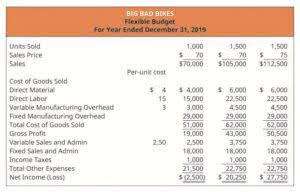
An accountant doesn’t only record the transactions but also prepares financial statements like trading and profit & loss account, balance sheet, etc. Both bookkeeping and accounting are responsibilities that are critical to a company but there is a difference to be made. The documentation of financial transactions is the responsibility of bookkeeping. Interpreting, classifying, analysing, reporting, and summarizing financial data are all functions of accounting. The primary difference between accounting and bookkeeping is that accounting needs data interpretation and analysis, whereas bookkeeping does not. Bookkeeping is the systematic process of recording and organizing all financial transactions made by a business.
- It involves recording all financial transactions, which provides the necessary data for accounting.
- Bookkeeping is the process of recording financial transactions of a business in a journal or ledger.
- Bookkeeping involves identifying, measuring, and recording financial transactions.
- 11 Financial may only transact business in those states in which it is registered, or qualifies for an exemption or exclusion from registration requirements.
- Incorporating professional services becomes crucial when the volume of financial transactions increases.
- However, Accounting is the process of measuring and recording all financial transactions of a financial year.
Our Services

Our writing and editorial staff are a team of experts holding advanced financial designations and have written for most major financial media publications. Our work has been directly cited by organizations including Entrepreneur, Business Insider, Investopedia, Forbes, CNBC, and many others. Our team of reviewers are established professionals with decades of experience in areas of personal finance and hold many advanced degrees and certifications. At Finance Strategists, we partner with financial experts to ensure the accuracy of our financial content. 11 Financial is a registered investment adviser located in Lufkin, Texas.
Differences
In summary, while bookkeeping and accounting complement each other, they have different roles in managing business finances. Bookkeeping is the meticulous recording of financial transactions, while accounting involves the interpretation of this data for financial decision-making. Both processes are vital for a business’s success, offering a complete picture of financial health and aiding in strategic planning. Many people often confuse bookkeeping and accounting, Certified Bookkeeper but they serve distinct roles in managing finances. Bookkeeping involves recording every financial transaction a business makes. On the other hand, accounting takes these records and analyzes them to present a bigger financial picture.
What are the 3 most important financial statements to be prepared by the business?
- This combination ensures that all financial aspects of the business are covered comprehensively.
- Therefore, we can say that the process of accounting begins where the process of bookkeeping ends.
- They also use financial transactions to classify and create reports.
- Accrual accounting records revenues and expenses when they are incurred, regardless of when cash is exchanged.
- Accountants analyze financial data to identify trends, measure performance, and forecast future financial scenarios.
- If there is no accurate bookkeeping, the accounting statements will likely be inaccurate.
11 Financial may only transact business in those states in which it is registered, or qualifies for an exemption or exclusion from registration requirements. Accounts payable are amounts a business owes to its suppliers for goods or services received. Accounts receivable are amounts owed to a business by its customers for goods or services delivered on credit.


Finance degrees are frequently deemed suitable substitutes for persons who do not have a formal accounting degree. Accountants, unlike bookkeepers, can get further professional certifications. Accountants with sufficient experience and education, for example, may be payroll eligible for the designation of Chartered Accountant (CA), which is one of the most prestigious accounting degrees.
- Our writing and editorial staff are a team of experts holding advanced financial designations and have written for most major financial media publications.
- The primary difference between accounting and bookkeeping is that accounting needs data interpretation and analysis, whereas bookkeeping does not.
- The key financial statements are the Balance Sheet, Income Statement, and Cash Flow Statement.
- The main differences between bookkeeping and accounting are summarized in the table below.
- Bookkeeping is the activity of recording, classifying, and arranging financial entries.
In smaller businesses, bookkeepers are generally in charge of more than just documenting transactions. They also use financial transactions bookkeeping services to classify and create reports. They may lack the necessary education to do these jobs, but most accounting software automates reports and memorizes transactions, making transaction categorisation easier. An accountant may record a company’s financial transactions and handle the bookkeeping element of the accounting process.
Leave a Reply